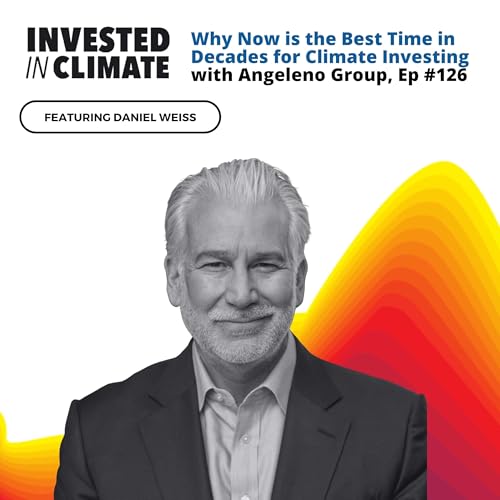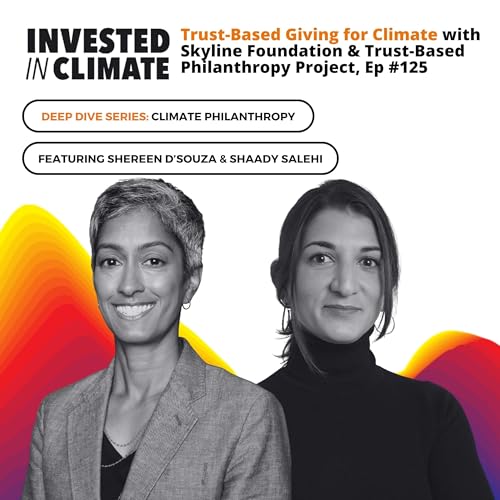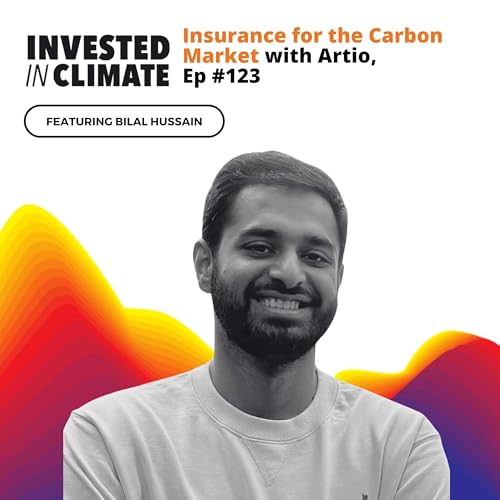Philanthropy plays a uniquely critical role in climate action—it can fund the bold, early-stage, community-led, and systems-changing work that markets and governments too often overlook. And with the federal government cutting funding to a wide range of climate, energy and conservation efforts, philanthropy plays a more important role than ever before.
That’s why we’re teaming up with the Skyline Foundation and their Climate Lead, Shereen D’Souza on a series of conversations on climate philanthropy.
Over the coming episodes, we’ll explore how philanthropy can accelerate climate solutions—not just by moving more money, but by moving it differently and to high impact topics and geographies. We’ll talk to leaders who are rethinking power, reimagining partnerships, and reshaping the way resources flow.
Today, we’re starting with a conversation that sets the tone for the entire series: trust-based philanthropy. What does it look like to fund climate work in ways that are long-term, rooted in real relationships, and prioritize the expertise of grantee organizations? How can funders shift from control to collaboration, and what happens when they do?
Shereen and I are joined by Shaady Salehi, Executive Director of the Trust-Based Philanthropy Project. Shaady has been at the forefront of this movement, helping foundations transform their practices and support grantees with more transparency, humility, and flexibility. We talk about Shaady and Shereen’s backgrounds in philanthropy, what trust-based philanthropy is and how it can help non-profit partners be more effective, why it’s relevant to Skyline Foundation’s approach and ways other donors can learn more.
This series is one of several deep dive series we’ve created this year. Find the others on InvestedinClimate.com and reach out through the website if you’d like to partner on a deep dive series of your own.
On today’s episode, we cover:- 03:30 – Shadi’s Background & Origins of Trust-Based Philanthropy
- 05:34 – Shireen’s Climate Journey & Work on the Paris Agreement
- 08:38 – Inside the Skyline Foundation’s Climate Program
- 10:21 – The Role of Philanthropy vs. Markets in Climate
- 12:20 – What Makes Skyline Different as a Climate Funder
- 13:29 – What Is Trust-Based Philanthropy? Core Practices
- 17:11 – Accountability & Critiques of Trust-Based Philanthropy
- 19:20 – Power Dynamics & Mutual Accountability
- 20:58 – Inside the Trust-Based Philanthropy Project
- 23:12 – How Trust-Based Philanthropy Shows Up at Skyline
- 25:35 – Why Trust-Based Philanthropy Is Critical for Climate Now
- 27:55 – How Trust Builds Honesty & Problem-Solving
- 29:32 – Shadi’s Motivation & What’s at Stake Systemically
- 33:12 – Barriers to Trust-Based Climate Philanthropy
- 34:21 – How Skyline Shares Control with Field Experts
- 38:11 – Entry Points for Funders New to Trust-Based Philanthropy
- 40:23 – Closing & Call to Action
Resources Mentioned- Skyline Foundation
- Trust-Based Philanthropy Project
- The Whitman Institute
 48 mins
48 mins Jan 13 202654 mins
Jan 13 202654 mins 37 mins
37 mins Dec 11 202541 mins
Dec 11 202541 mins 44 mins
44 mins 41 mins
41 mins![The $9 Trillion Adaption Opportunity with Adapt[us], Ep #122](https://m.media-amazon.com/images/I/41f3gHr30nL._SL500_.jpg) 45 mins
45 mins 45 mins
45 mins
